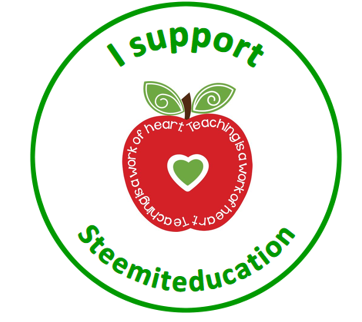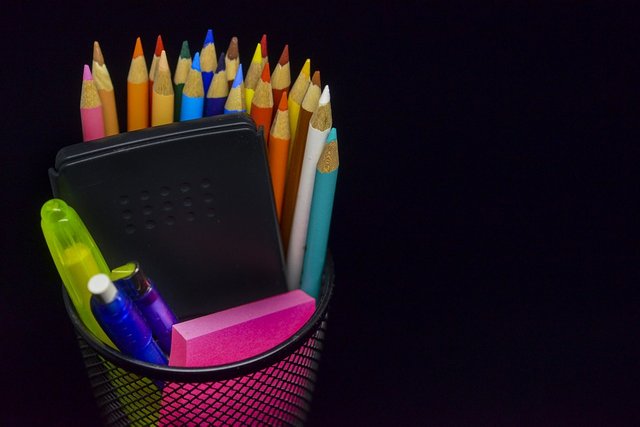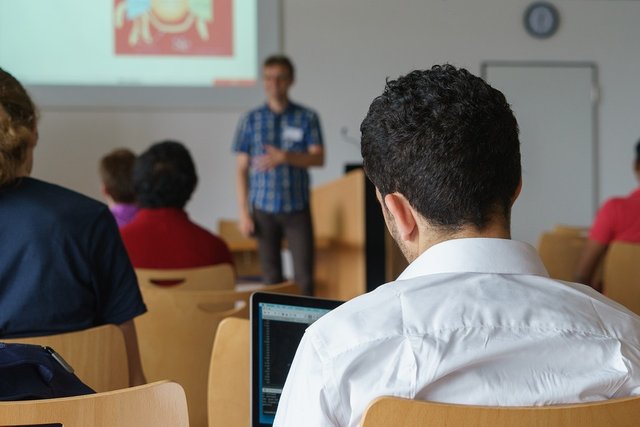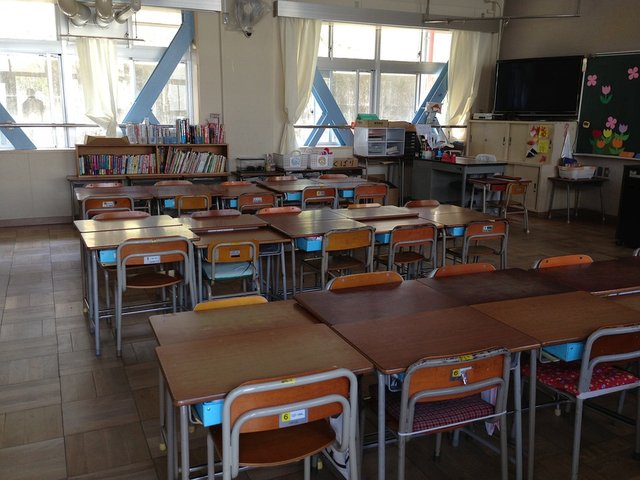Tuesday January 15: teacher's day in Venezuela. Some words
Good morning, my dear readers. Soon the teacher's day is celebrated in Venezuela, next Tuesday, January 15. I wanted to make this post and dedicate it to all my teaching colleagues as a way to give another color to the reason why this day is exalted.
Regardless of your position, I invite you to read these words that I have written from a 20-year retrospective that I have as a teacher and the prospective of what I think of this profession and where it is going.
(This text has been translated by software. I apologize if for this reason some errors are incurred.)
Is the task of educating easy?
Have we stopped to think seriously if we are encouraging the students, through our pedagogical practices, the incentive to discover that studying and attending classes will depend on improving their future and being better people?
Is the task of mediating learning easy?
During the 60s there was a global movement that marked the transformation and the passage of a marked way of carrying out the learning process with emphasis on a behavioral vision on the teaching action.
The passage of time and the emerging paradigms in the field of education demonstrated in reality that this model was already sterile and that its fruits did not cause the necessary impact to foster in students the necessary attitudes to face social complexities.
On the other hand, the physical structures of educational institutions with their archaic disposition, which still remains unchanged in the middle of 2019, did not make the best symbiosis to sustain the bridge of changes that society was demanding.
This way of taking the educational process to the classrooms together with the disposition and structures of the schools, both traditional and archaic, have made it clear to history that this is not the way. But apparently no one is listening.
It has been this traditional model of the teacher and the school that is not only in crisis for a number of reasons, but simply can not be sustained because that society of the mid-twentieth century has very little in common with the one we have before we, very little has in reference about the formative requirements as well as the real educational needs of the population.
It is a model that has been stuck in the midst of the fierce dynamics of knowledge, the advance of the social sciences and the dynamics that are created daily on the basis of the changes that occur.
It is from this deaf attitude that the continuous disconformities of the students are born. There is a constant and grotesque decontextualization of the educational process that is imparted in the institutions and life lived by students, teachers and the entire educational community.
How is this possible in the heart of the knowledge society, in the midst of a revolution in the means of tele-communication and new information technologies?
Is not it logical that when history advances, changes and is equally transformed by education and its forms of projection in the ways and means of mediating student learning?
Education definitely deserves an answer and in turn it has to generate responses and redefine its role and status both of the benefits that are generated in the social and those that from its center should propose. Demand and give.
Within this dynamic, the redefinition of the school and the teacher is urgent. It is impressive to think that a doctor, a chemist, a biologist, for example, of the 19th century make entrance today to a space where they can do their practice and simply find themselves totally disoriented and lost without being able to do anything.
This would not happen to a teacher who enters a school, a classroom.
Everything changes and these elements remain unchanged, fossilized.
The schools look like barracks of the 20s: rows, hymns, bells, halls, central courtyards, desks in rows where each child sees the backs of their peers, the teacher always in front of the group, unalterable and fossil routine, guards , fossil portraits of people who died many years ago, recess, we work more with past events and characters from the past than with present or future events and living people who are working for the progress of humanity.
Gross (2003), a very sharp and critical author on issues related to education, agrees with these statements when he says that he says that the biggest problem with which education is faced is that all the approaches that have been used are out of time and they do not fit in with the true and real needs of the population to which it benefits.
Therefore it is necessary to have a critical position regarding what we are doing, since the one-way model: teacher-student must change urgently.
The problem closely.
Educational institutions still act contrary to the reality that arises. There are still teachers who take hold on a blackboard and make use of a dominant discourse as a center and protagonists of the pro ceso. This frontal pedagogical form removes oxygen to the appropriation, understanding and construction of knowledge.
It is an issue that is already very repeated. It is that the teacher, fundamentally, change their and begin to promote a true emancipatory process, constructive, valid for the student.
In the same way, much has repeated the lack of training and professional preparation of teachers. Situation that has been directly related to this lack of updating and incorporation of new elements and strategies to pedagogical practices.
On the other hand, the lack of vocation also has a determining influence on the performance of the teacher and so, in addition to condemning themselves, they also condemn the students to a totally gray class day, monotonous and devoid of meanings.
The lack of motivation towards the work that is done affects at all times the possibilities of searching and implementing new paths. For this it is vital that the professional of the teaching is a tireless researcher, not a repeater of what he already knows and what is within his reach.
It is necessary to have a new vision about:
Knowledge.
The students.
The school.
The profession.
The own competences and capacities.
Our students are regular users of new technologies. They communicate with each other and with the world through these resources. Interfaces with sound, colors and movement. Dynamic, changing, attractive and friendly environments.
We must reflect in a very critical way that these children and young people process information in a very particular way and above all differently from how we did it. They are digital natives unlike us who are digital immigrants.
We have serious challenges if we want to give our contribution so that education improves. To bridge generational gaps and approach our students through a deep, motivating and comprehensive practice of the nature of new students.
The students of the 21st century have undergone a radical change with the exception of their immediate predecessors. It is not just the usual differences in slang, aesthetics, clothing and personal ornamentation or even style, which are always evident when an analogy is established between young people of any generation compared to their predecessors, but we refer to something much more complex, deep and transcendental: there has been an important discontinuity that constitutes a whole "singularity": a discontinuity motivated, no doubt, by the rapid and uninterrupted diffusion of digital technology, which appears in the last decades of the 20th century.
Marc Prensky (2001)
Dear teaching friend, to close this chapter, I remind you that you are not alone. We are thousands of professionals that every day we face this challenging task of reinventing ourselves every day for the meeting with our students.
Finally I remember the words of Fernando Savater when he said that in education it is necessary to be optimistic.
References.
What is the teacher that is required today?
Digital natives and digital immigrants
The profile that the teacher should have today

And if you want to know more about these topics you can visit my networks.






Has recivido un voto por @cultivandojuntos, Un voto hecho por un bot de construccion experimental en la comunidad de la etiqueta español
Congratulations @sandracabrera! You have completed the following achievement on the Steem blockchain and have been rewarded with new badge(s) :
Click here to view your Board
If you no longer want to receive notifications, reply to this comment with the word
STOPTo support your work, I also upvoted your post!
Do not miss the last post from @steemitboard: